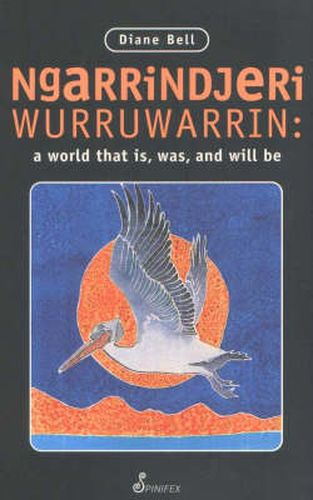Readings Newsletter
Become a Readings Member to make your shopping experience even easier.
Sign in or sign up for free!
You’re not far away from qualifying for FREE standard shipping within Australia
You’ve qualified for FREE standard shipping within Australia
The cart is loading…






This book not only fills a void in the anthropological literature, it demands that we think again about our commitment to justice for Australia’s original inhabitants and the bases of our knowledge of Aboriginal societies. Diane Bell presents a finely textured ethnographic portrait of a very different Aboriginal culture. Or is it? Weaving texts written with voices of women and men whose struggle to protect their sacred sights in the Hindmarsh Island, Murray Mouth Goolwa area became the subject of a South Australian Royal Commission, two Federal Heritage applications, media speculation, anthropological disputation, and dramatic parliamentary strategising. Diane Bell takes us into a world that has been invisible to many ‘experts’. She ponders the distinctive dynamic nature of Ngarrindjeri culture; the ways in which we think about social change; the politics of knowledge; and the centrality of religion for people whose lives have been profoundly affected by two centuries of colonialisation of their lands.
$9.00 standard shipping within Australia
FREE standard shipping within Australia for orders over $100.00
Express & International shipping calculated at checkout
This book not only fills a void in the anthropological literature, it demands that we think again about our commitment to justice for Australia’s original inhabitants and the bases of our knowledge of Aboriginal societies. Diane Bell presents a finely textured ethnographic portrait of a very different Aboriginal culture. Or is it? Weaving texts written with voices of women and men whose struggle to protect their sacred sights in the Hindmarsh Island, Murray Mouth Goolwa area became the subject of a South Australian Royal Commission, two Federal Heritage applications, media speculation, anthropological disputation, and dramatic parliamentary strategising. Diane Bell takes us into a world that has been invisible to many ‘experts’. She ponders the distinctive dynamic nature of Ngarrindjeri culture; the ways in which we think about social change; the politics of knowledge; and the centrality of religion for people whose lives have been profoundly affected by two centuries of colonialisation of their lands.